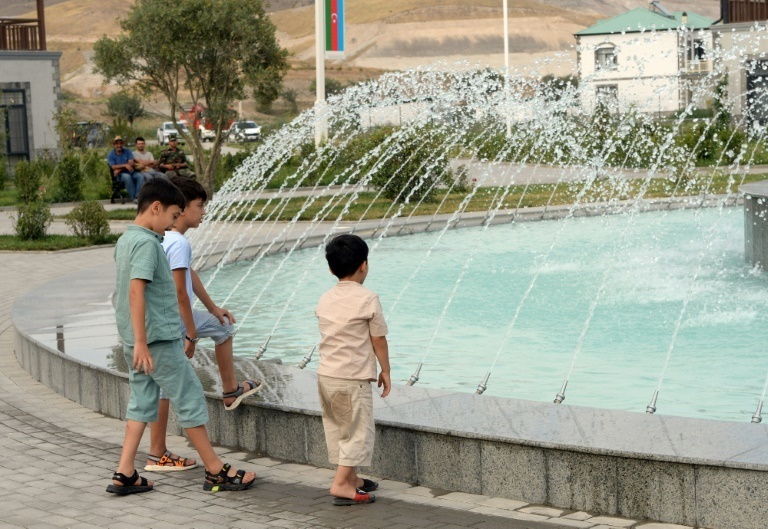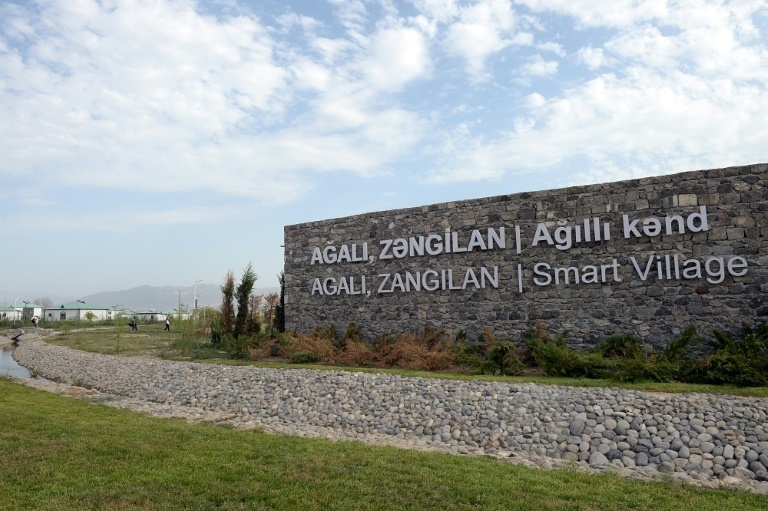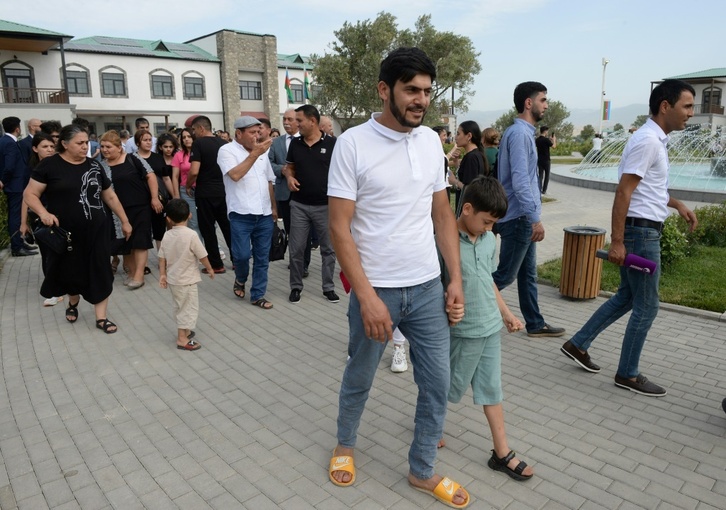Azerbaijan on Tuesday began the process of returning its people to land recaptured from Armenian separatists in what Baku calls "The Great Return" following a 2020 war over disputed Nagorno-Karabakh.
The oil-rich country has vowed to repopulate lands recaptured in the six-week war with arch-foe Caucasus neighbour Armenia that killed more than 6,500 people two years ago.
President Ilham Aliyev had for years promised to retake lands lost in the 1990s and the first returns marked a symbolic moment for Azerbaijan.
An official said almost 60 people moved back to a village they had had to flee in 1993, when ethnic Armenian separatists broke away from Baku, triggering a conflict that claimed around 30,000 lives.
Hundreds of thousands of Azerbaijanis quit the area during the fighting.
"Fifty-eight people returned to the district of Zangilan" recaptured by Baku in October 2020, special presidential representative in the region Vahid Hajiyev, told reporters.
More than 30,000 ethnic Azerbaijanis fled Zangilan, near the Iranian border, in 1993.
"At this stage, a total of 41 families will return" over the next five days to the newly rebuilt village of Agally in Zangilan, Hajiyev said.
- 'Native land' -
The government has pledged to provide jobs for the returnees, he said. It has already built in Agally dozens of houses equipped with solar batteries, a brand new school, and a kindergarten, he added.
"Over the next months the village will be fully repopulated."
Emotions ran high as repatriates stepped down from buses in Agally's windswept central square, where a new fountain sparkled under a sweltering sun.
"We are so happy to be back," one of the returnees, 64-year-old Mina Mirzoyeva told AFP. "This is our homeland, our native land."

"May all the refugees return to their homes, just as we did today," she said.
"I fled my village with my four children and today I am back with my big family, with my nine grandchildren."
Baku has vowed to spend billions of petrodollars on the reconstruction of Nagorno-Karabakh and nearby recaptured areas.
It allocated $1.3 billion in last year's budget for infrastructure projects such as new roads, bridges and airports in the region.
But a large-scale return of refugees remains a distant prospect given the scale of the devastation and the danger from landmines.
- Peace talks -
In the autumn of 2020, Azerbaijan and Armenia went to war for a second time for control of Karabakh.
The fighting ended with a Russian-brokered ceasefire agreement.
Under the deal, Armenia ceded swathes of territory it had controlled for decades, and Russia deployed some 2,000 peacekeepers to oversee the fragile truce.

This weekend, the foreign ministers of Armenia and Azerbaijan met in the Georgian capital Tbilisi for their first one-on-one talks since the war.
They were expected to build on an agreement which Aliyev and Armenian Prime Minister Nikol Pashinyan reached under EU mediation in May to "advance discussions" on a future peace treaty.
The two leaders met in Brussels in April and May and European Council President Charles Michel has said their next meeting is scheduled for July or August.
Following its invasion of Ukraine on February 24, an increasingly isolated Moscow lost its status as the primary mediator in the conflict.
The European Union has since led the Armenia-Azerbaijan normalisation process, which involves peace talks, border delimitation and the reopening of transport links.
eg-im/jj
© Agence France-Presse
Your content is great. However, if any of the content contained herein violates any rights of yours, including those of copyright, please contact us immediately by e-mail at media[@]kissrpr.com.
Source: Story.KISSPR.com

